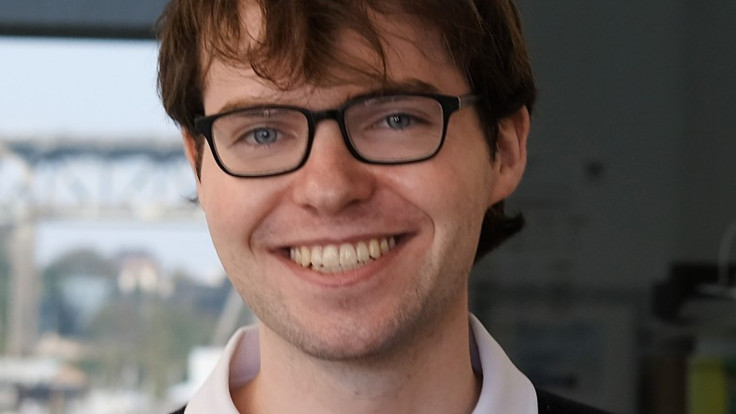AI Whiz Kid Turned Down $125 Million From Meta — Here's Why Zuckerberg Wanted Him
Deitke, a highly sought-after AI talent, previously led AI chatbot Molmo's development

In a jaw-dropping turn of events, a 24-year-old artificial intelligence researcher stunned the tech world by turning down a colossal $125 million (£94.11 million) offer from Meta.
The move, described by insiders as one of the boldest rejections in recent AI recruitment history, sent shockwaves through Silicon Valley—and caught the personal attention of Meta CEO Mark Zuckerberg.
Zuckerberg's Bold Pursuit of Top AI Talent
Mark Zuckerberg and Meta's determined effort to dominate the AI landscape reportedly led them to a 24-year-old AI researcher. The New York Times reported that Matt Deitke initially turned down Meta's $125 million (£94.11 million) proposal, prompting Zuckerberg himself to become involved.
Last week, I joined Meta Superintelligence Lab (MSL)!
— Matt Deitke (@mattdeitke) July 21, 2025
This is going to be an exciting ride! 🚀 pic.twitter.com/mZ9yIxn9UN
Following the meeting, Meta secured an agreement with a modified four-year compensation package, reportedly valued at up to $250 million (£188.21 million) in stock and cash.
Beyond the Billions: What Made Him Say No?
The New York Times report, citing two sources close to the discussions, indicated Deitke's preference was to continue with his new startup, Vercept, even after the initial $125 million (£94.11 million) offer.
Zuckerberg personally arranged a meeting with him. After their chat, Meta returned with an updated offer that doubled the original, potentially including $100 million (£75.29 million) for the first year alone. The compensation surged so significantly that Deitke sought counsel from his peers, many of whom ultimately encouraged him to agree to the deal.
The AI Whiz: Unpacking Matt Deitke's High Demand
According to the report, Matt Deitke is a valuable asset in the AI community. His prior work involved leading the development of Molmo, an AI chatbot that understands images, sounds, and text. This multi-modal system aligns well with Meta's aims.
He received an Outstanding Paper Award at NeurIPS 2022 for his contributions to 3D datasets and embodied AI. This elite distinction is granted to only a dozen researchers out of over 10,000 submissions.
In November, Matt Deitke co-founded his own company, Vercept, dedicated to creating AI agents capable of independently carrying out tasks using internet-based software. This startup, with around 10 employees, secured $16.5 million (£12.42 million) from investors, including former Google CEO Eric Schmidt.
Meta's High-Stakes Game for AI Supremacy
According to the report, Meta has reportedly invested over $1 billion (£0.75 billion) to assemble an 'all-star roster' for its 'superintelligence' research division. This entails attracting leading AI professionals from competing companies such as OpenAI, Anthropic, Apple, and Google.
We are excited to announce that @shengjia_zhao will be the Chief Scientist of Meta Superintelligence Labs!
— Alexandr Wang (@alexandr_wang) July 25, 2025
Shengjia is a brilliant scientist who most recently pioneered a new scaling paradigm in his research. He will lead our scientific direction for our team.
Let's go 🚀 pic.twitter.com/D93KQWIvFl
Recently, Ruoming Pang, the former head of Apple's AI models team, joined Zuckerberg's Superintelligence Labs team with a compensation package reportedly exceeding $200 million (£150.57 million). Additionally, Meta plans to allocate a staggering $72 billion (£54.21 billion) for capital expenditures in the coming year alone.
'We're building an elite, talent-dense team,' Zuckerberg told investors. 'If you're going to be spending hundreds of billions of dollars on computers and building out multiple gigawatts of clusters, then it does make sense to compete super hard and do whatever it takes to get that, you know, 50 or 70 or whatever it is, top researchers to build your team. There's just an absolute premium for the best and most talented people.'
A War for the Brightest Minds
With Meta forecasting $72 billion (£54.21 billion) in capital expenditure for the coming year alone, it's clear that the company views AI not just as a technological evolution, but as an existential race. The willingness to double down on offers and involve top leadership in talent negotiations highlights just how intense this war for innovation has become.
Matt Deitke's journey is a testament to the growing power of visionaries in AI—those who aren't just sought after for their skills but are reshaping the rules of engagement in Big Tech's fiercest battle to date.
© Copyright IBTimes 2025. All rights reserved.






















